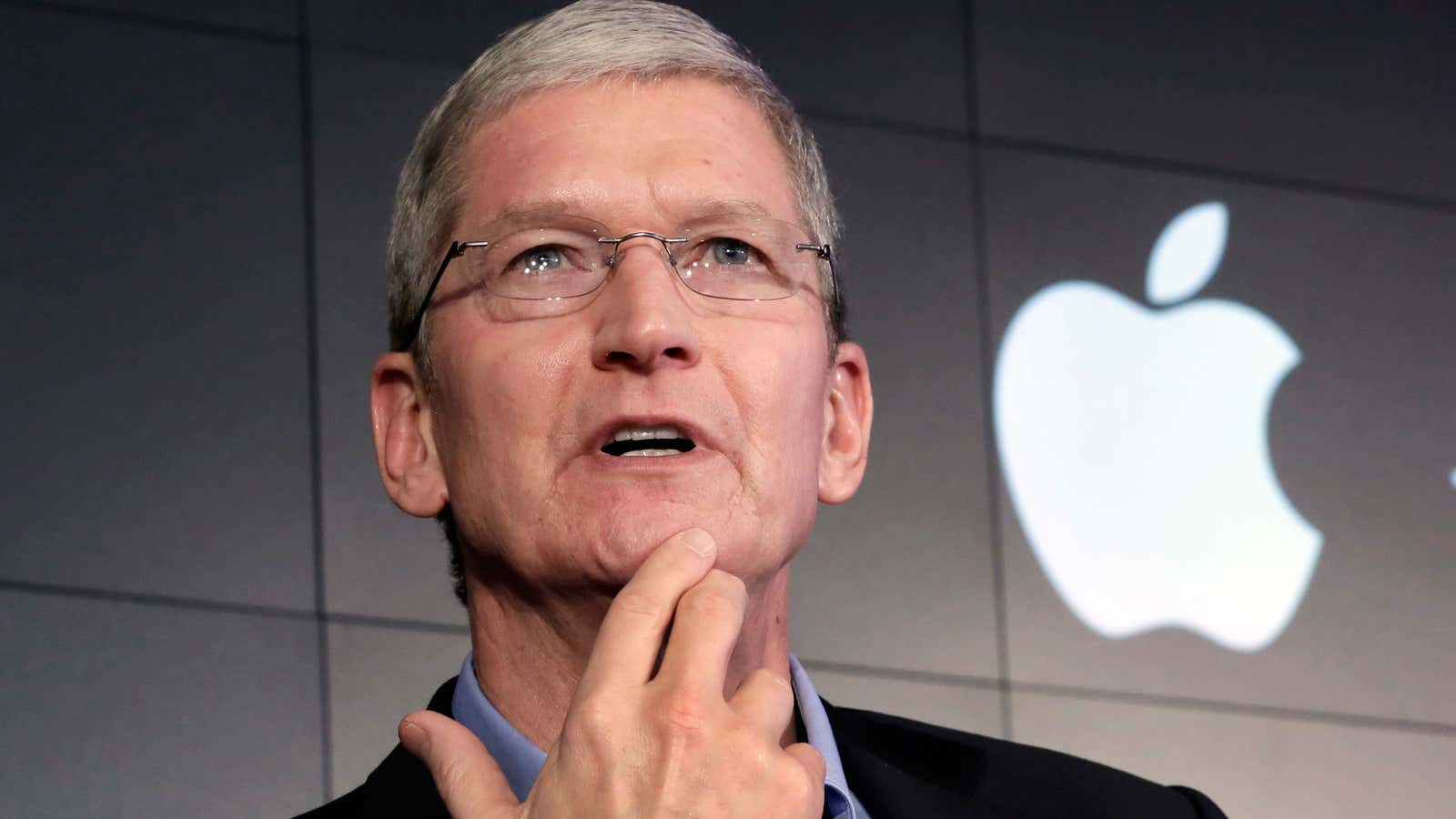Apple is showing some sass in its campaign against the US government’s attempt to bypass iPhone security. The company filed a motion today (Feb. 25) to vacate the court order (pdf) requiring Apple to help the FBI break into an iPhone used by one of the San Bernardino shooters.
The government wants Apple to create a special operating system that would let the FBI attack the iPhone’s passcode lock without wiping the phone. Apple’s filing includes a list of already well-rehearsed reasons why it shouldn’t have to do that, among them the claim that it would violate the company’s First Amendment right to freedom of speech. But it couldn’t help but sneak in a not-so-subtle burn to the government. Apple said in the filing:
Since the dawn of the computer age, there have been malicious people dedicated to breaching security and stealing stored personal information. Indeed, the government itself falls victim to hackers, cyber-criminals, and foreign agents on a regular basis, most famously when foreign hackers breached Office of Personnel Management databases and gained access to personnel records, affecting over 22 million current and former federal workers and family members.
Apple’s referring to a pair of hacks revealed in 2015 that exposed the personal details—including fingerprints and unencrypted Social Security numbers—of more than 22 million current and former federal employees, contractors, and their families and friends. The events, believed to be the biggest government hack in US history, were traced to the Chinese government and deeply embarrassed the US government. The filing goes on:
In short, the government wants to compel Apple to create a crippled and insecure product. Once the process is created, it provides an avenue for criminals and foreign agents to access millions of iPhones. And once developed for our government, it is only a matter of time before foreign governments demand the same tool.
The implication is that by forcing Apple to compromise iPhone security, the US government weakens the nation’s security. Whether the judge will be swayed by that argument is anyone’s guess. It’s hard to imagine the government’s lawyers will be.
